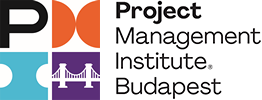Latest News from our Blog
May 22 2025 at 06:00PM
AI in project management: the good and the badAI is no longer an abstract concept addressed only to engineers, but in the recent years it has gained momentum in a variety of domains and industries, creating a technological advancement fo...
Continue readingApril 22 2025 at 12:12PM
How PMOs can manage successful Agile transformationsAn Agile transformation is a strategic endeavour which requires time, effort, money and vision, and considering the advantages of introducing Agile approach in...
Continue readingMarch 09 2025 at 02:54PM
Freelancing in Project management: pros and consWith the disrupting events and humanitarian crisis in the recent years, the job market as we know it has been going through tremendous transformations. While w...
Continue readingJanuary 29 2025 at 05:30AM
Agile movement in PMOsWhat is Agile?! Have you considered the meaning of the word agile? As found in the Cambridge dictionary, agile is an adjective which describes the movement or ...
Continue readingDecember 10 2024 at 06:17AM
How the PMO can drive valueIf the statistics for the lifespan of PMO structures are so pessimistic (3 out of 4 PMOs close within the first 3 years of activity), then what can we do to im...
Continue readingOctober 22 2024 at 05:00AM
The role of PMO in today’s organizationsIf you had to define PMO in the context of current organizations in 2024, how would you define it? What is the function performed by PMO and what responsibili...
Continue reading


